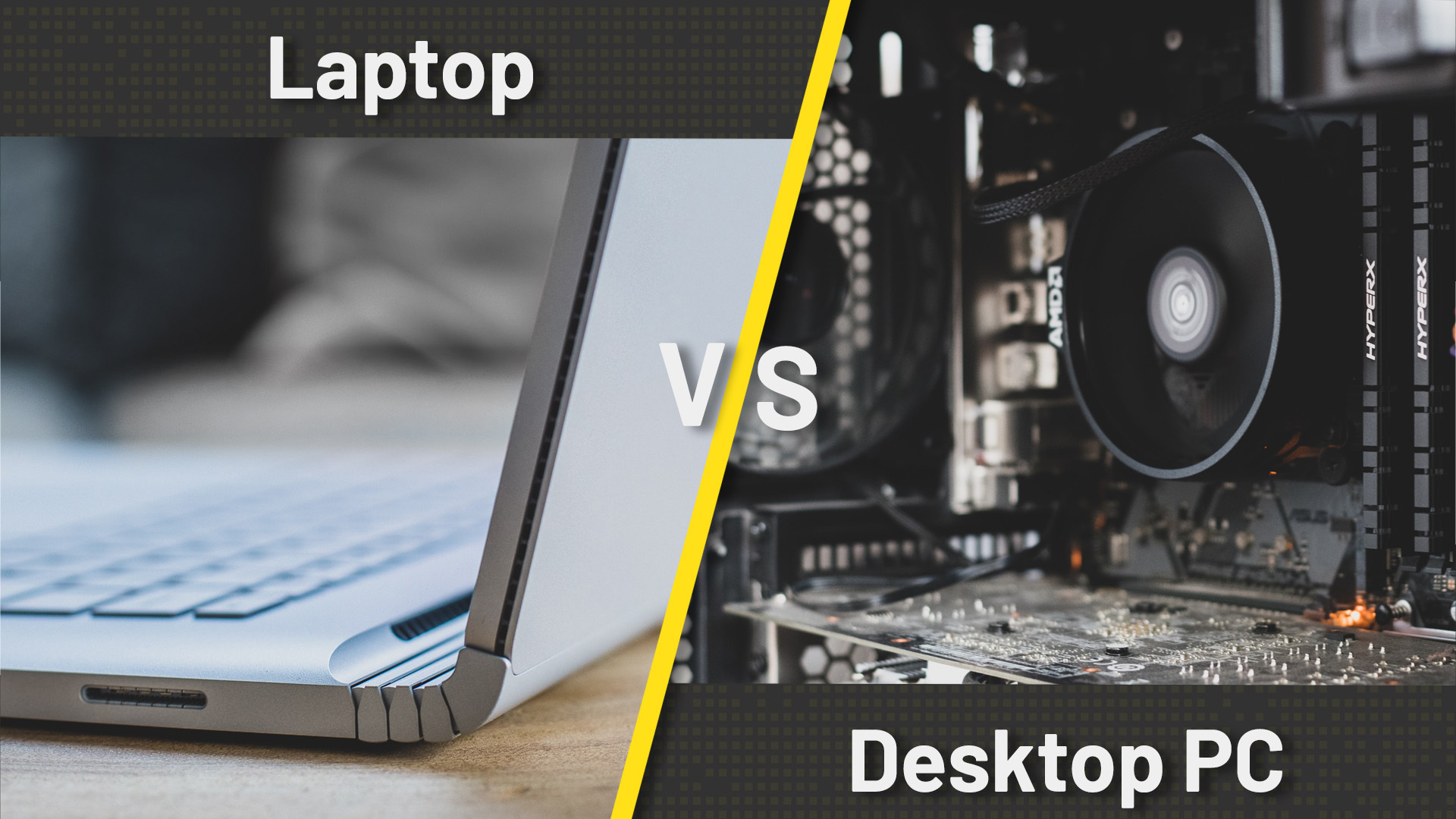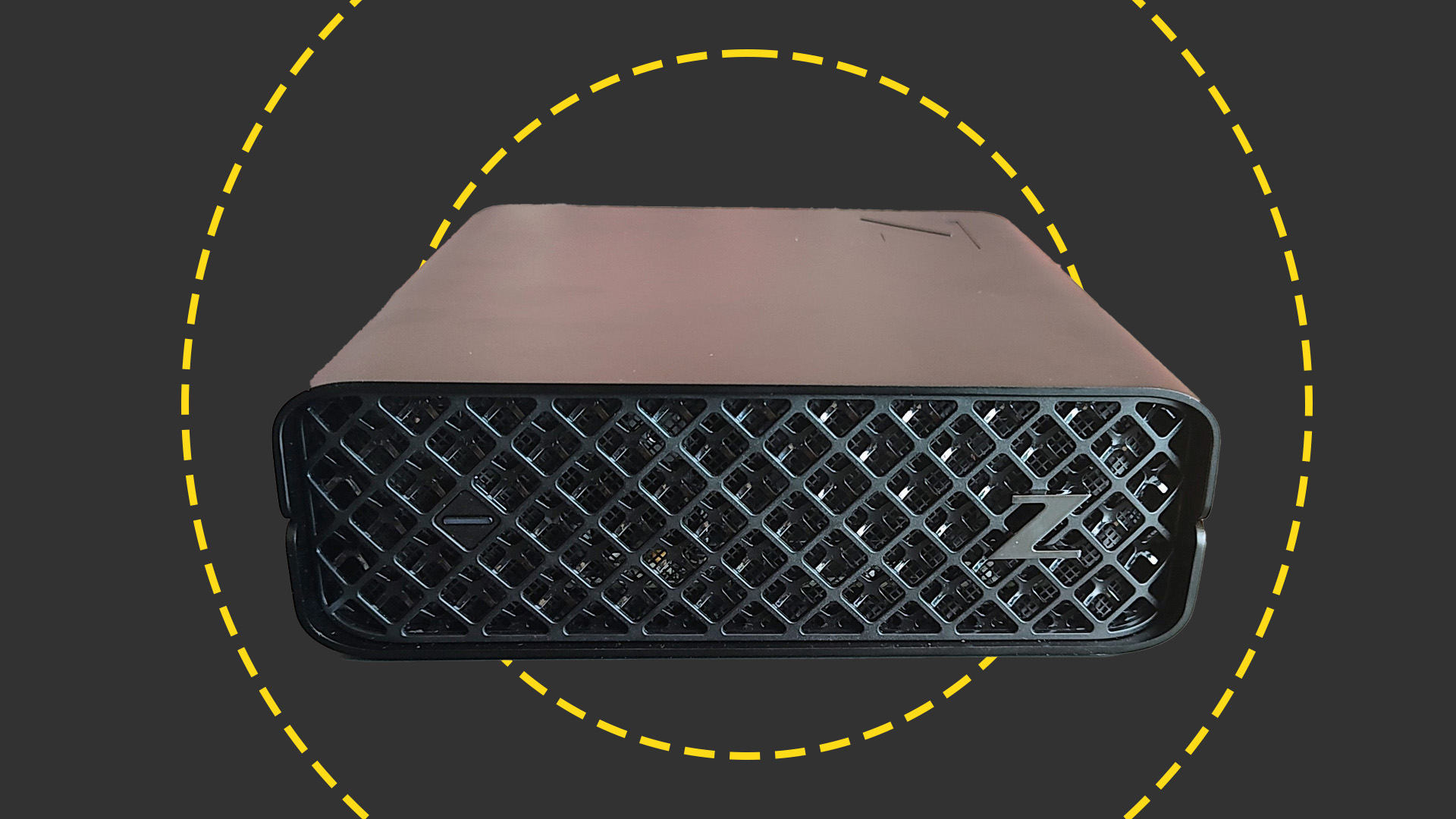Laptops vs desktops: Which one is better for the office?
We weigh up the age-old dilemma of whether a laptop is better than a desktop for everyday business use


When it comes to the consumer, the choice over whether to buy a laptop or a desktop is a simple one. It's down to personal preference and there isn't really a way to highlight a clear winner to everyone.
However, from a business perspective, your choice can have much wider ramifications. Kitting the workforce out with business laptops is generally more friendly to a hybrid work model, with flexibility being at the heart of every decision. Desktops are very much stationary machines, and may seem a tad old fashioned in a modern business context, but they may, in fact, be the best solution open to you.
Laptops vs desktops: What's the difference?
Although it's pretty obvious from a consumer perspective, the difference between a desktop and a laptop will be more nuanced for businesses, particularly as any decision will have a knock-on effect for other considerations down the line.
The desktop is a stationary computer that will sit next to, on top of, or under one desk in the office, and will likely not be moved until it's broken or replaced. The whole setup will be spread across multiple devices and peripherals, including a dedicated business-class monitor, webcam, keyboard, and mouse. As such, desk type and size are a big consideration if you're rolling out desktop PCs.
Laptops, on the other hand, are all-in-one computers that have the screen, keyboard, processing hardware, and mouse functions bundled into a single device. Offices that allow staff to use laptops usually have bare desks and more choices around seating plans and hotdesking practices. People can usually take their laptops anywhere in the building, rather than sticking to a specific seat and cubicle. Docking stations are now commonplace in offices, allowing staff to plug in their laptops to access additional functionality, whether that's ethernet internet connections or external monitors.
Price is also a factor as the cost of a laptop is generally higher than what you would pay for a similarly-specced desktop, at least initially. For example, a 24in iMac with 8GB of RAM and a Magic Keyboard will start at £1,249, whereas a Macbook Pro (13in) is roughly £100 more. Of course, the decision to provide workstations with external monitors can drive up the overall investment.
Where a desktop might incur more cost is its capacity for an upgrade, but these might not be necessary depending on your business needs. You can increase GPU and CPU specs and customise most components at will, but, regardless of how much investment you feed into a desktop, it will remain a stationary machine that may limit your office in terms of seating and remote working.
Laptops vs desktops: Is a laptop better than a desktop?
For the average business, the additional flexibility, ease of use, and capacity to support remote working make laptops by far the most common choice. In terms of logistics, they're by far the most sensible option, as you can easily ship a pre-configured laptop to an employee, while still having the option of supplying additional hardware if necessary.
However, from a performance perspective, desktops offer the best return on investment, typically allowing you to access far more powerful components at a cheaper price. For example, when similarly specced, a laptop will almost always be more expensive than a PC - you're essentially paying for the extra flexibility.
READ MORE

The same is true for external hardware, such as monitors. A laptop is limited by its size to weight ratio, and so ultra-portable laptops generally favour smaller screens with less advanced display technology. However, moving to a dedicated monitor opens up a much wider choice of technology, whether that's larger screen sizes, higher resolutions, or faster refresh rates. You may even be able to push your luck and source some pretty powerful display tech - as those who use a gaming monitor for work can attest.
Easier access to components makes desktop PCs an ideal choice for any employee involved with demanding tasks, such as creating projects using the Adobe software suite. These tend to place huge strain on system RAM and CPUs, something which you can easily compensate for by upgrading a desktop PC on the fly. Laptops are comparatively limited in their flexibility, and if a laptop is not powerful enough for a task, it will typically mean refreshing the device for something newer.
The wider availability of cheaper and smaller components may eventually make desktop PCs entirely obsolete in the workplace. However, it's fair to say you'll be powering your business on both types of machine for the foreseeable future.
Get the ITPro daily newsletter
Sign up today and you will receive a free copy of our Future Focus 2025 report - the leading guidance on AI, cybersecurity and other IT challenges as per 700+ senior executives
Bobby Hellard is ITPro's Reviews Editor and has worked on CloudPro and ChannelPro since 2018. In his time at ITPro, Bobby has covered stories for all the major technology companies, such as Apple, Microsoft, Amazon and Facebook, and regularly attends industry-leading events such as AWS Re:Invent and Google Cloud Next.
Bobby mainly covers hardware reviews, but you will also recognize him as the face of many of our video reviews of laptops and smartphones.
-
 Bigger salaries, more burnout: Is the CISO role in crisis?
Bigger salaries, more burnout: Is the CISO role in crisis?In-depth CISOs are more stressed than ever before – but why is this and what can be done?
By Kate O'Flaherty Published
-
 Cheap cyber crime kits can be bought on the dark web for less than $25
Cheap cyber crime kits can be bought on the dark web for less than $25News Research from NordVPN shows phishing kits are now widely available on the dark web and via messaging apps like Telegram, and are often selling for less than $25.
By Emma Woollacott Published
-
 IT professionals aren’t budging on flexible work demands – and more than half say they’ll quit if employers don’t meet expectations
IT professionals aren’t budging on flexible work demands – and more than half say they’ll quit if employers don’t meet expectationsNews Analysis from Randstad shows 40% of UK-based IT pros have quit over a lack of flexible work options, while 31% of workers globally have done the same.
By Ross Kelly Published
-
 'The tide seems to be turning towards office attendance': 64% of hybrid business leaders want staff back in the office – but many worry that enforcing RTO mandates will drive employees away
'The tide seems to be turning towards office attendance': 64% of hybrid business leaders want staff back in the office – but many worry that enforcing RTO mandates will drive employees awayAnalysis Many UK business leaders want their staff back in the office more frequently, but they’re scared to implement return to office (RTO) mandates in fear of worker revolts.
By George Fitzmaurice Published
-
 Employees are dead set on flexible working arrangements – three quarters would turn down a role that didn't offer hybrid options as work-life balance becomes more important than pay
Employees are dead set on flexible working arrangements – three quarters would turn down a role that didn't offer hybrid options as work-life balance becomes more important than payNews New research shows workers are increasingly demanding flexible working arrangements from employers.
By Emma Woollacott Published
-
 Nearly half of tech workers are seeking new roles – declining employee benefits and reduced flexible working options have staff looking elsewhere
Nearly half of tech workers are seeking new roles – declining employee benefits and reduced flexible working options have staff looking elsewhereNews While salaries are rising for tech workers, other benefits are in decline, leading to a fall in job satisfaction
By Emma Woollacott Published
-
 Untethered: How CIOs and CISOs are paving the way for the new hybrid workforce
Untethered: How CIOs and CISOs are paving the way for the new hybrid workforceWhitepaper Effective techniques to transition from exposed legacy infrastructure to an effective zero trust strategy
By ITPro Published
-
 Unified endpoint management and security in a work-from-anywhere world
Unified endpoint management and security in a work-from-anywhere worldWhitepaper Learn how to converge endpoint management and security processes and systems to drive efficiency and reduce risk
By ITPro Last updated
-
 How to empower employees to accelerate emissions reduction
How to empower employees to accelerate emissions reductionin depth With ICT accounting for as much as 3% of global carbon emissions, the same as aviation, the industry needs to increase emissions reduction
By Fleur Doidge Published
-
 Worldwide IT spending to grow 4.3% in 2023, with no significant AI impact
Worldwide IT spending to grow 4.3% in 2023, with no significant AI impactNews Spending patterns have changed as companies take an inward focus
By Rory Bathgate Published